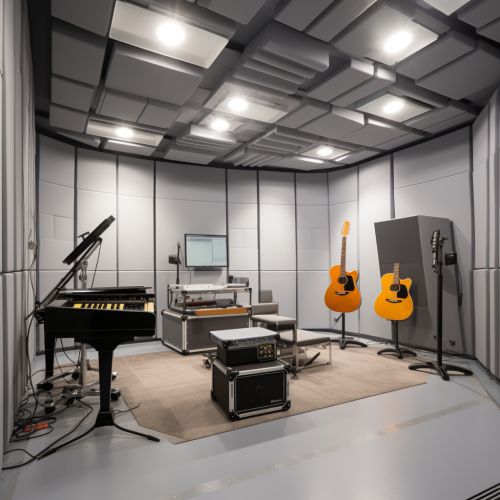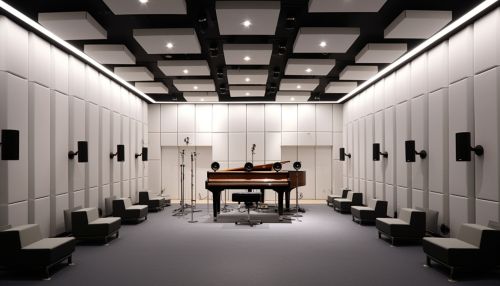Acoustician
Overview
An Acoustician is a professional who specializes in the study of sound, its production, transmission, and effects. This field of study, known as Acoustics, is a branch of physics that deals with the nature of sound and its behavior in various mediums. Acousticians apply their knowledge in a wide range of disciplines, including architecture, music, speech, and industrial production.
History
The study of sound and its properties has been a subject of interest since ancient times. The earliest known writings on the topic can be traced back to the works of philosophers such as Pythagoras and Aristotle. However, the formal discipline of acoustics as we know it today began to take shape in the 17th century with the work of scientists such as Galileo Galilei and Marin Mersenne.


Fields of Specialization
Acousticians often specialize in specific areas of acoustics. These include:
Architectural Acoustics
Architectural acousticians focus on the design of buildings and spaces to optimize sound quality and minimize unwanted noise. This involves the study of soundproofing techniques and the use of materials that can absorb or reflect sound.
Musical Acoustics
Musical acousticians study the physics of musical instruments and the human voice. They work on the design and improvement of musical instruments and concert halls, and also study the perception of musical sounds.
Bioacoustics
Bioacousticians study the production and perception of sound by animals. This field has applications in wildlife management, animal communication research, and environmental impact assessments.
Industrial Acoustics
Industrial acousticians work on the control of noise in industrial settings. They design noise control strategies and devices to protect workers' hearing and to comply with noise regulations.
Education and Training
Becoming an acoustician typically requires a strong background in physics and mathematics. Most acousticians hold a bachelor's degree in physics, engineering, or a related field, and many go on to earn a master's or doctoral degree in acoustics. Some universities offer specialized programs in acoustics, while others offer acoustics as a concentration within a physics or engineering program.
Career Opportunities
Acousticians work in a variety of settings, including research institutions, universities, government agencies, and private companies. They may work on projects ranging from the design of concert halls and recording studios, to the development of noise control strategies for industrial facilities, to the study of animal communication.
